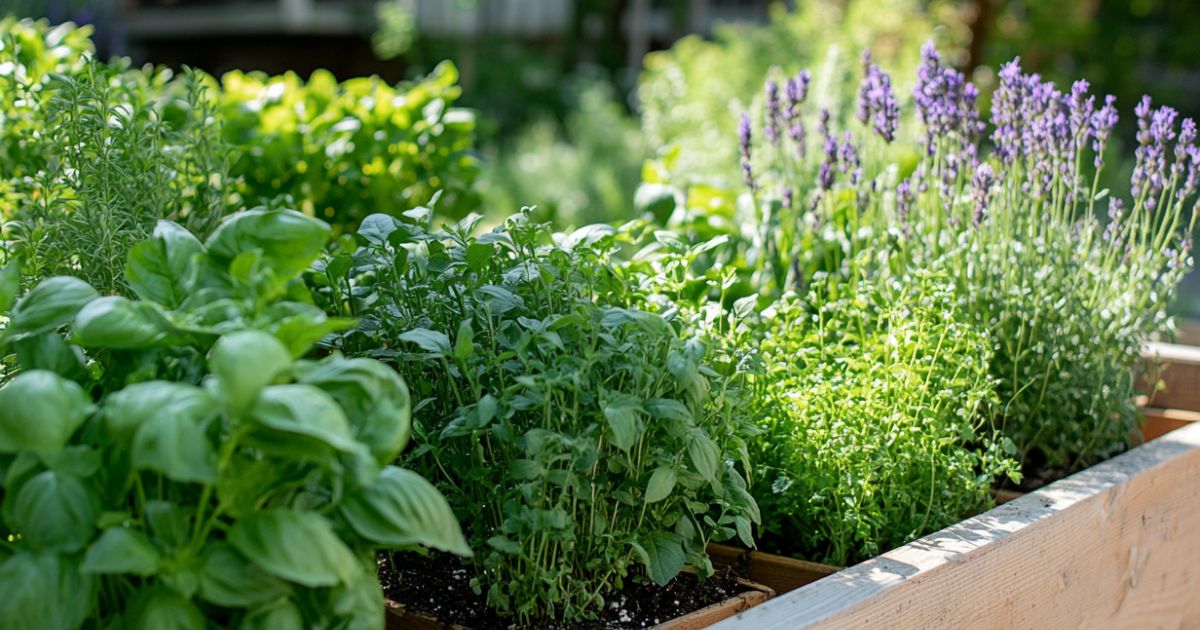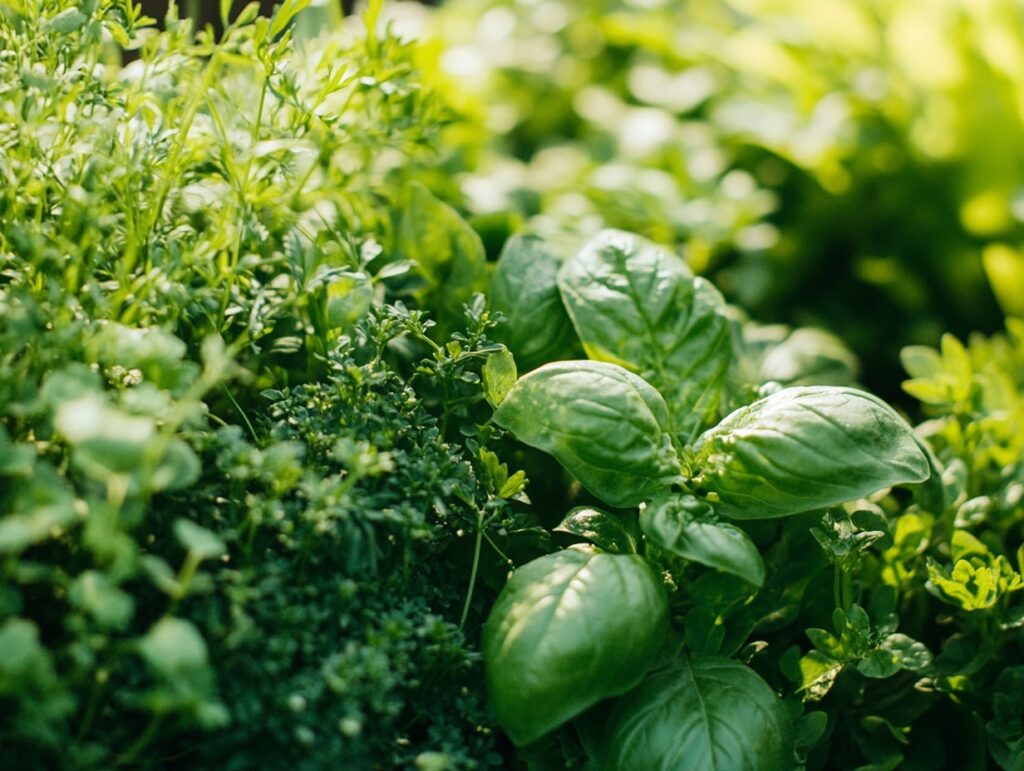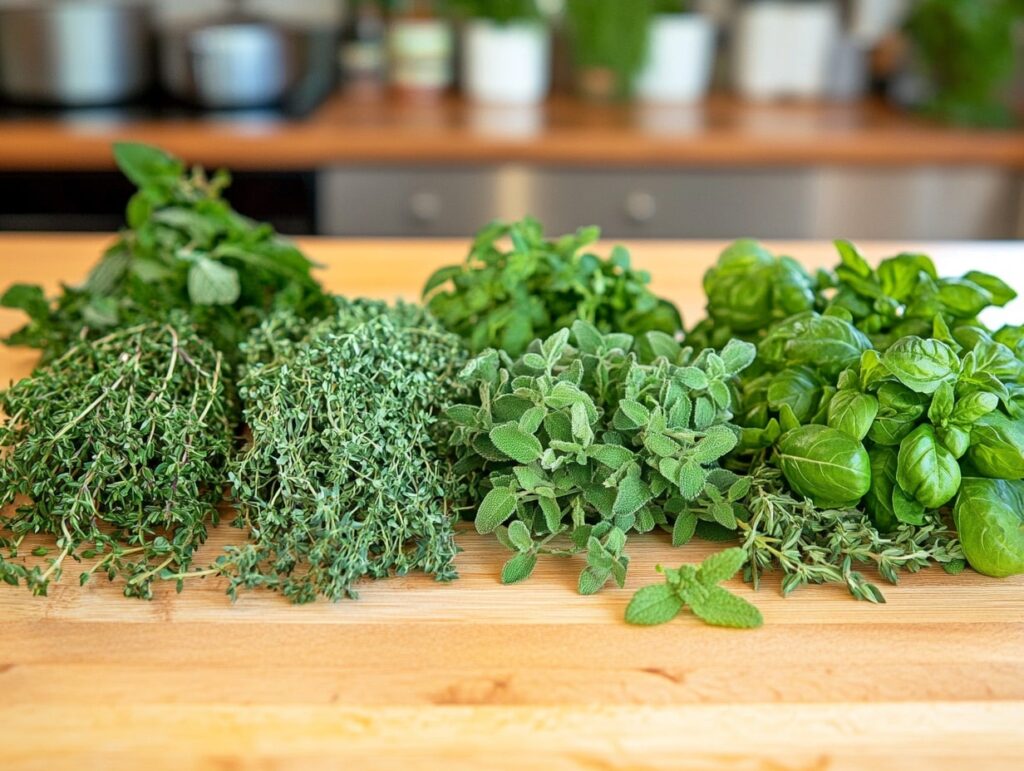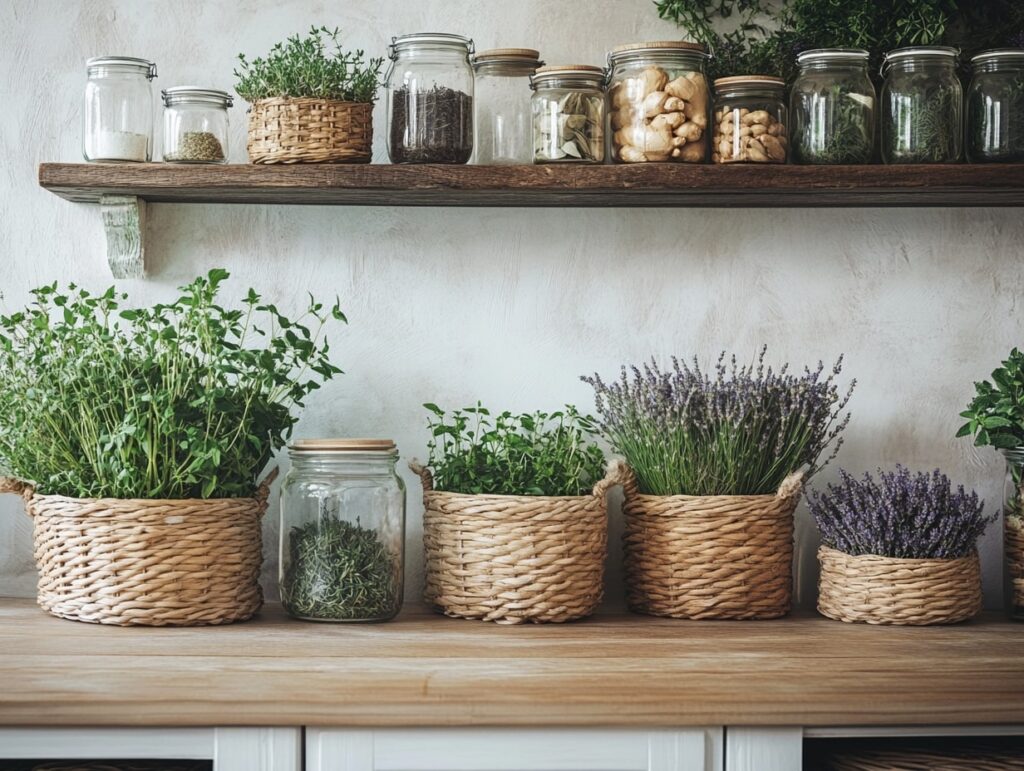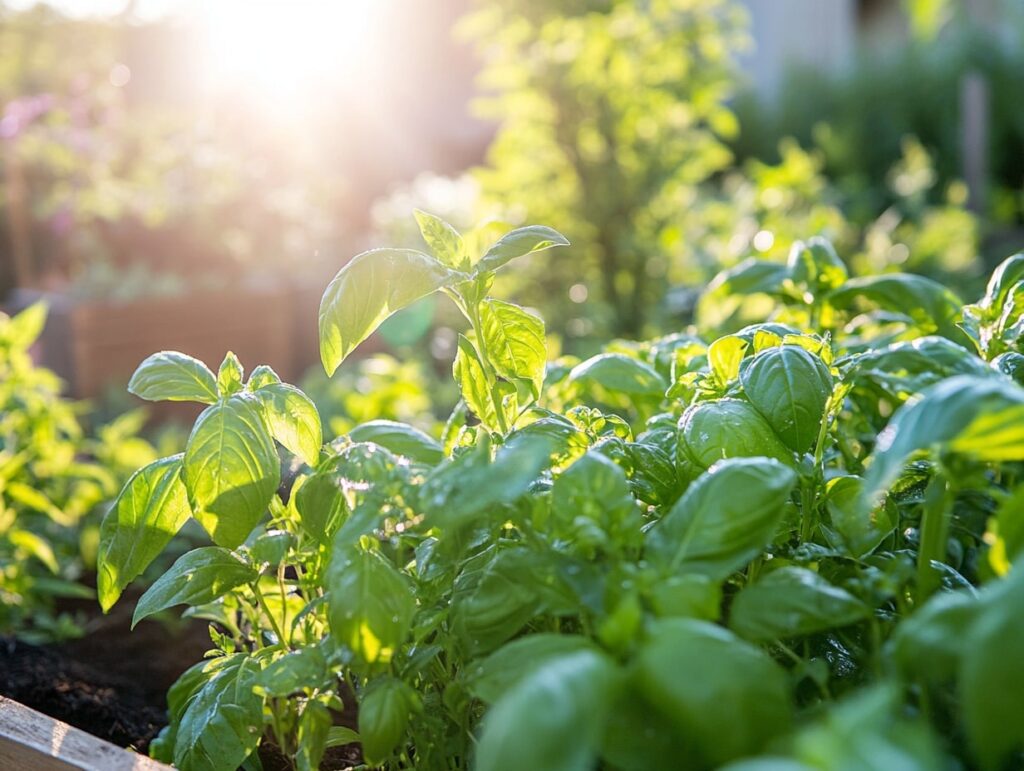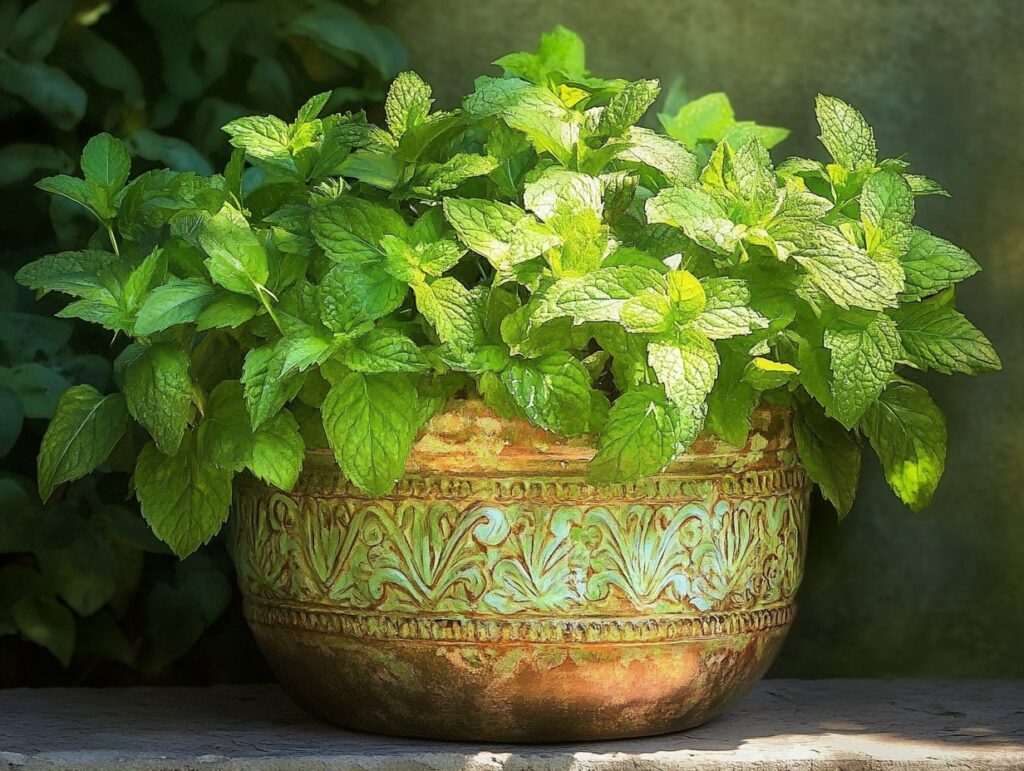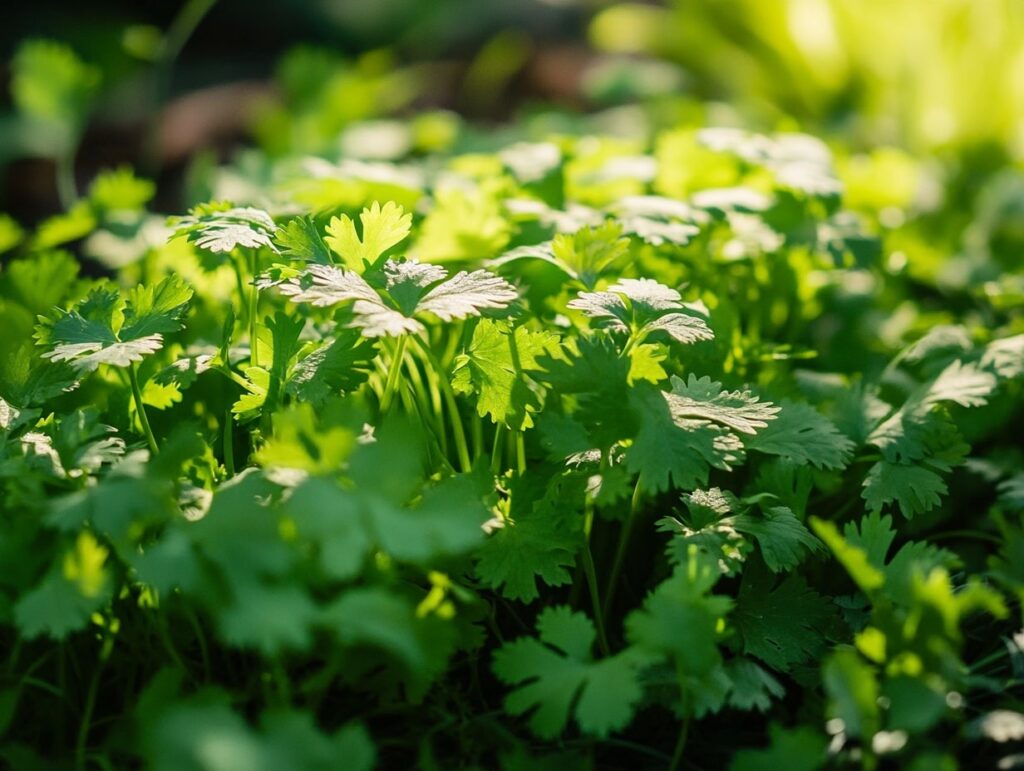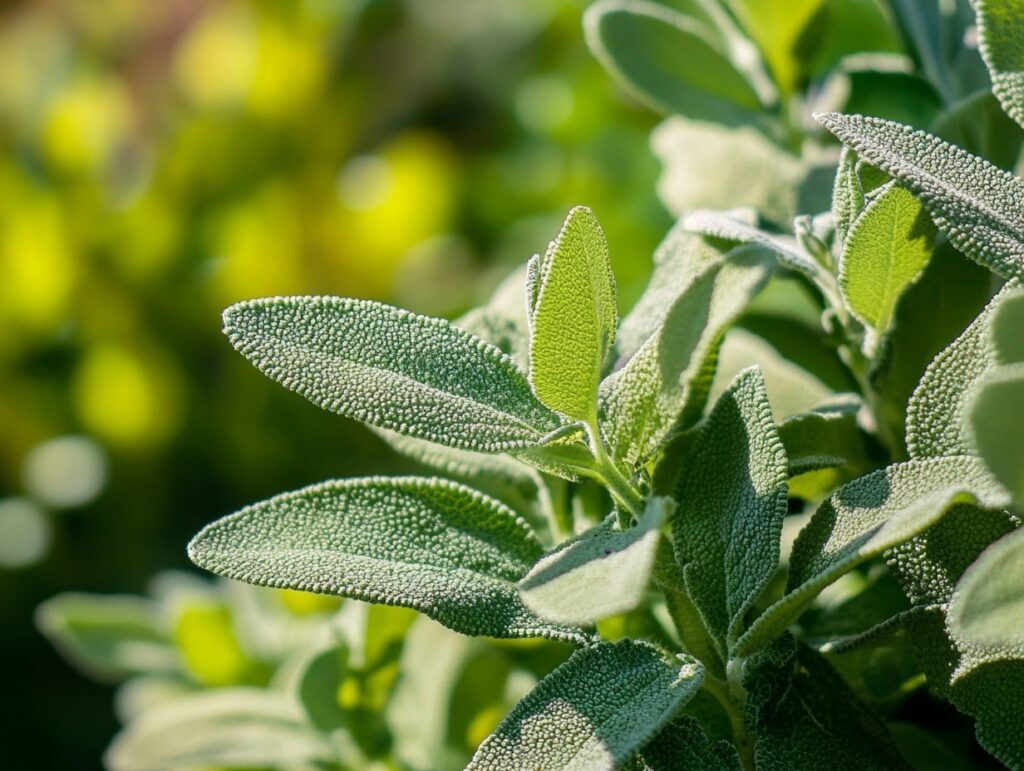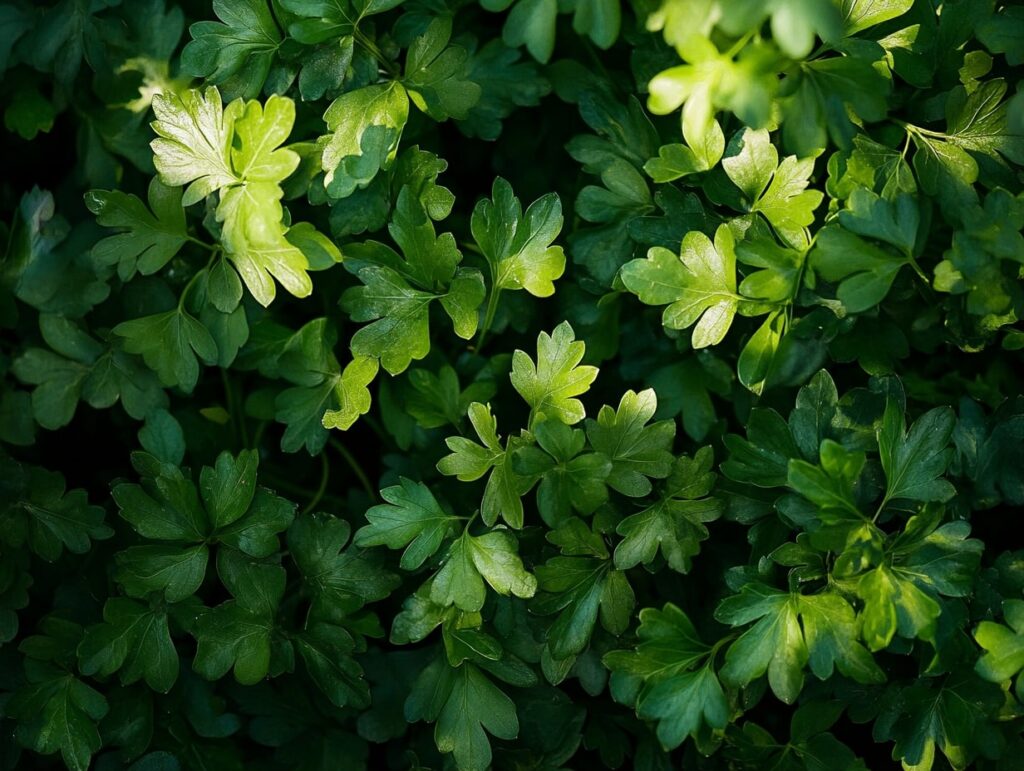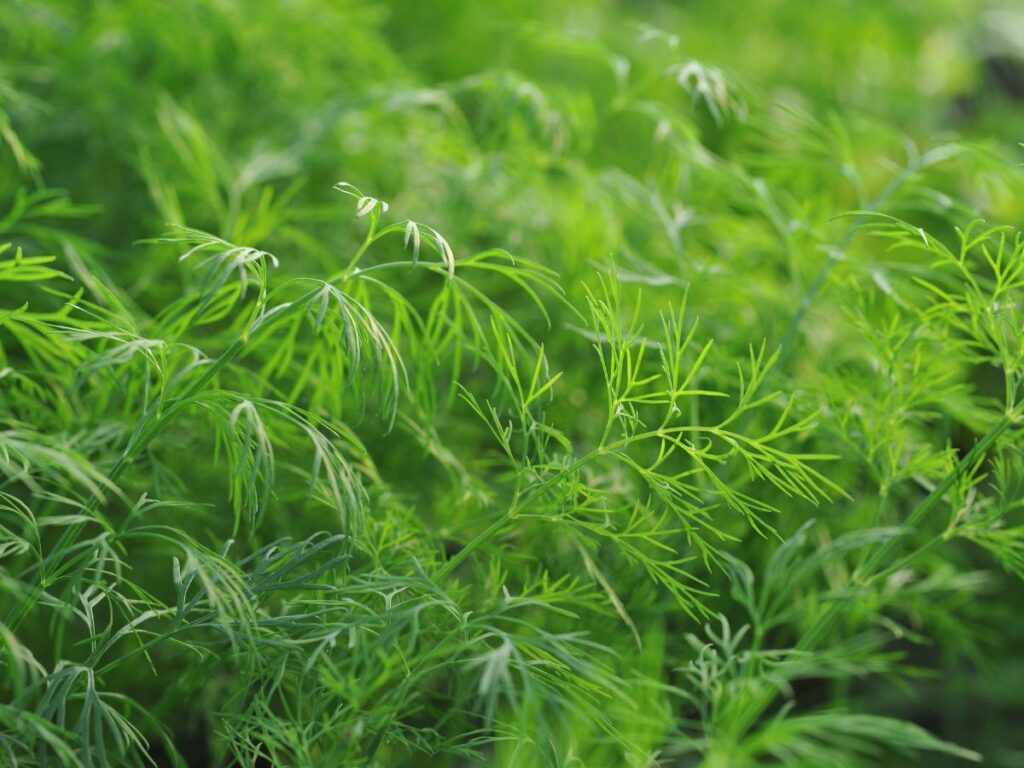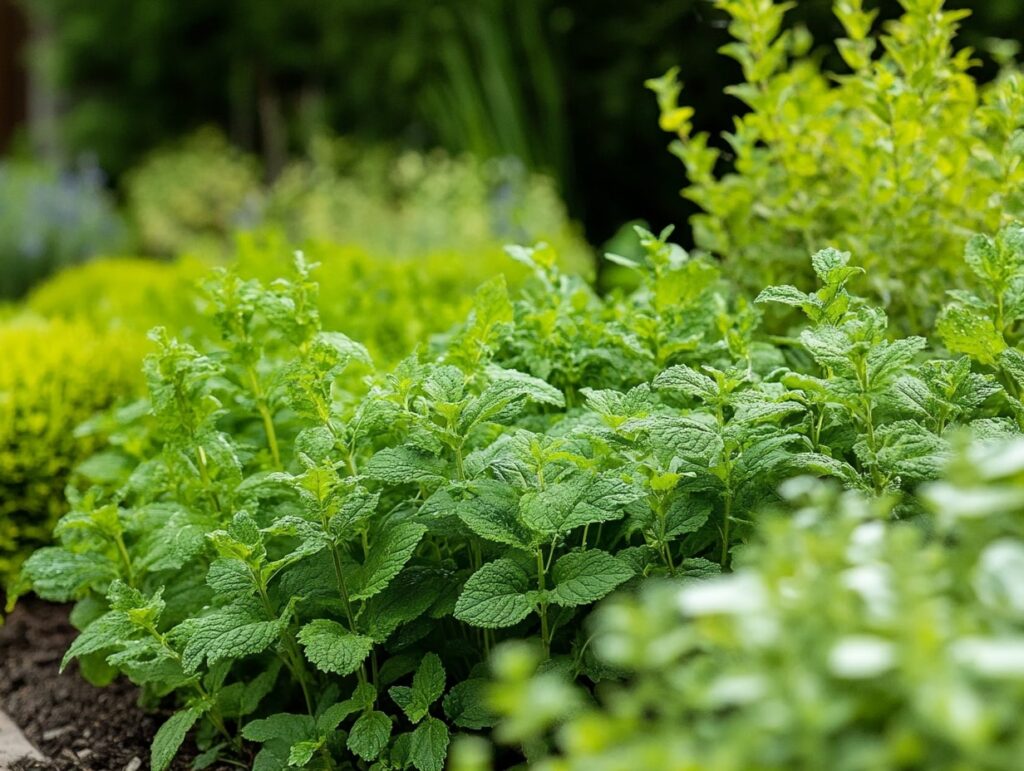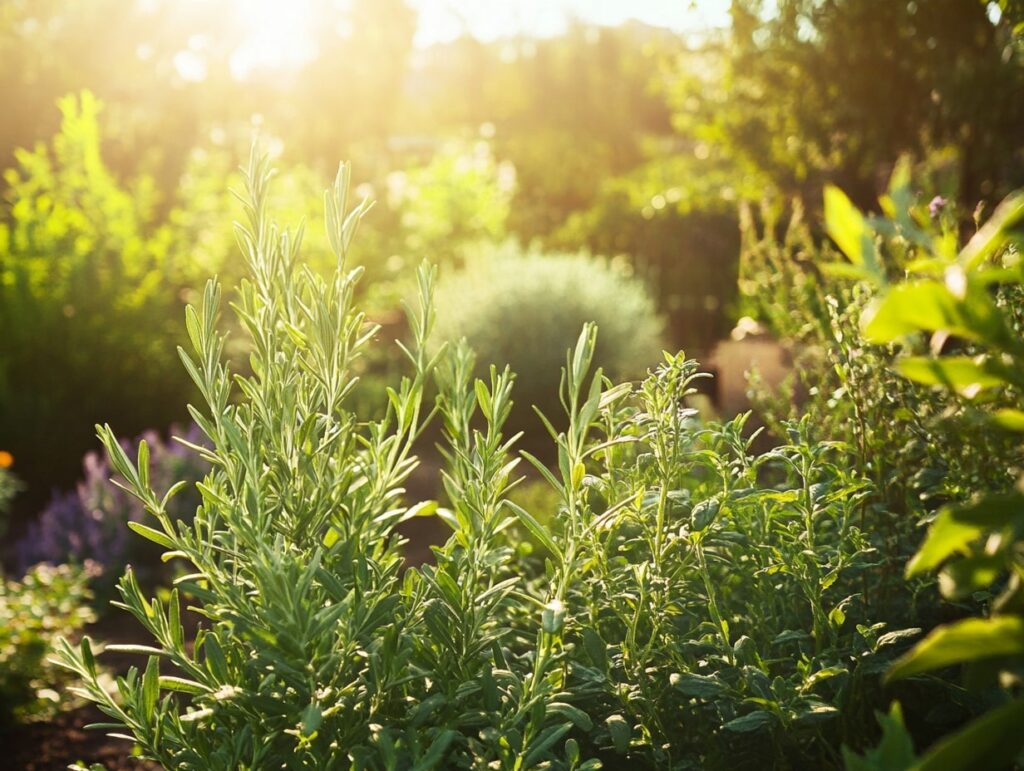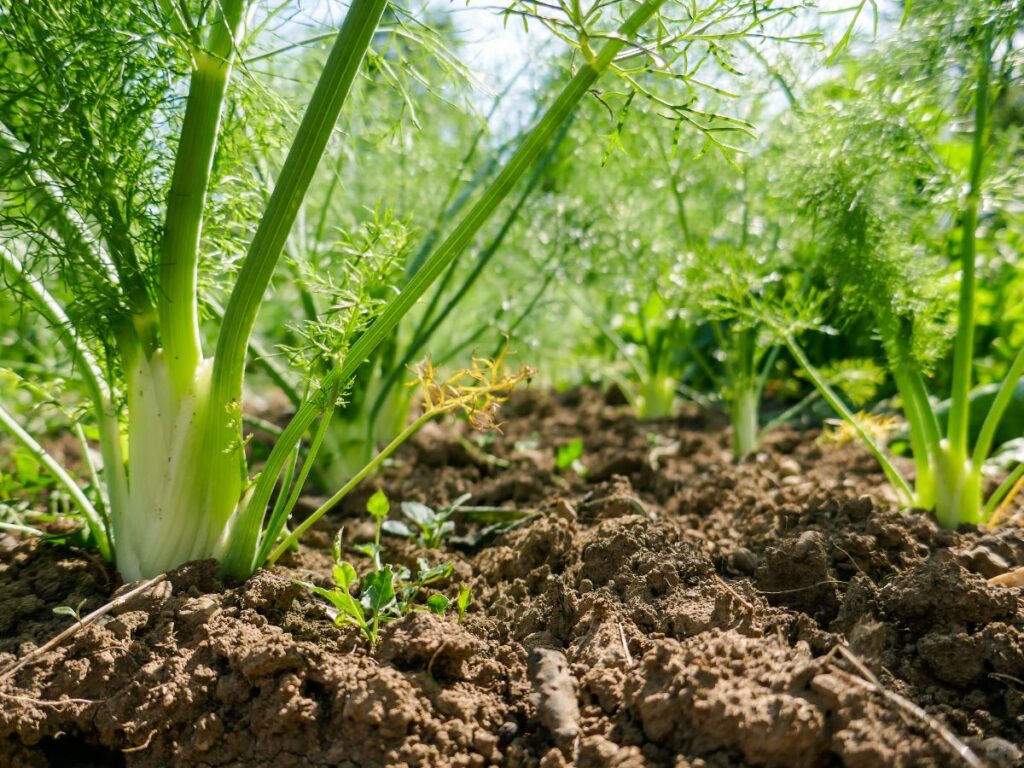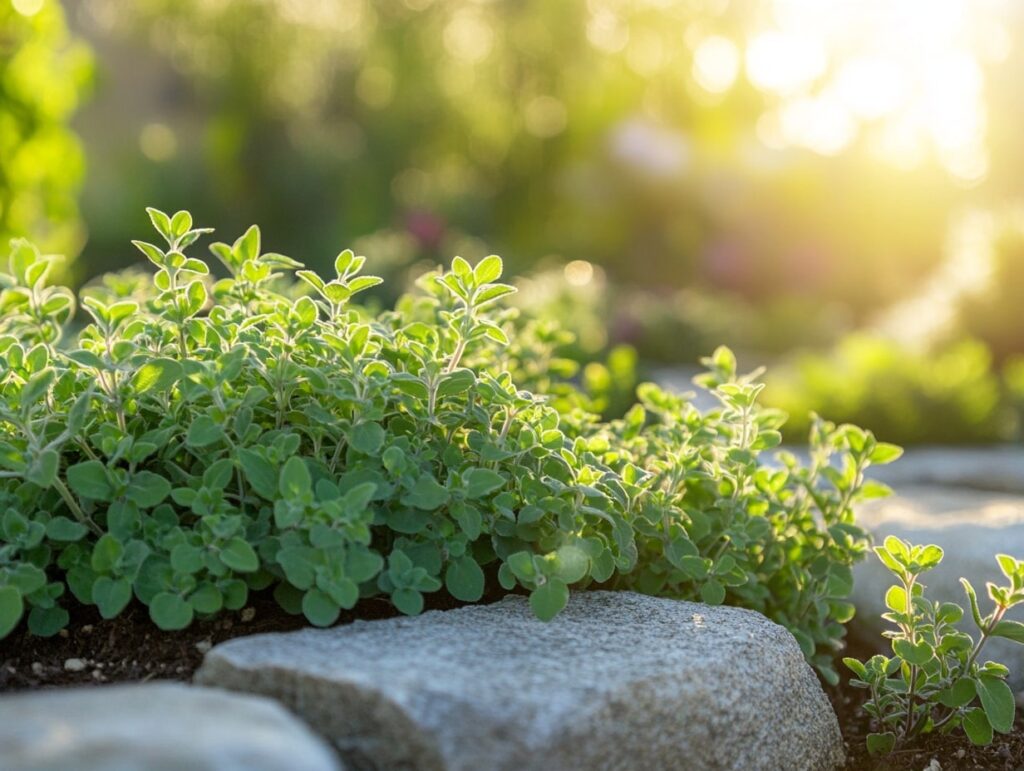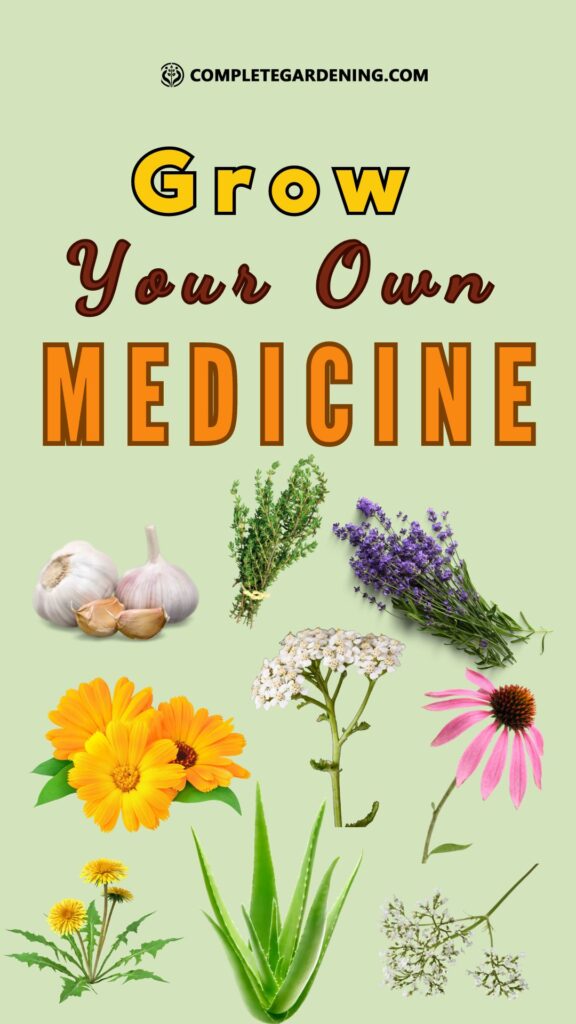Imagine stepping into your garden and being greeted by the aroma of fresh herbs. Not only do they enhance your meals, but they also offer health benefits.
Whether you’re aiming for aromatic dishes or natural remedies, growing your own healthy herbs gives you fresh and affordable options right at your doorstep.
Herbs like basil, mint, and rosemary are not only easy to maintain but also add a burst of flavor to your daily cooking. These plants bring beauty and utility, making your garden both charming and functional.
A small space or a few pots on your windowsill can set you up for success.
By cultivating herbs, you ensure access to fresh and pesticide-free ingredients. Customized to your taste and lifestyle, the plants you grow will reflect your personal needs.
Dive into this rewarding gardening hobby and explore the benefits of integrating herbs into your daily routine.
The Benefits of Growing Your Own Herbs
Growing your own herbs comes with several benefits such as enhancing your meals with fresh flavors, boosting your health with essential nutrients, and potentially offering natural remedies for common ailments. These benefits make herb gardening a rewarding and satisfying hobby.
Nutritional Advantages
Inherited from their nutrient-rich nature, herbs like basil, parsley, and cilantro are packed with antioxidants, vitamins, and minerals. These compounds play an important role in boosting your immune system and promoting overall health. For instance, parsley is rich in vitamin K, which is essential for blood clotting and bone health.
Growing herbs gives you access to fresh produce, ensuring maximum nutrient content. Store-bought herbs may lose their nutritional value over time due to long storage and transportation durations. By consuming freshly picked herbs, you
enjoy their full potential in terms of taste and benefits.
Culinary Uses
Herbs add a burst of flavor to various dishes, transforming simple meals into gourmet delights. Fresh ingredients like mint, thyme, or rosemary can elevate everything from soups and stews to salads and desserts. These fragrant additions not only tantalize your taste buds but can reduce the need for added salt or sugar in recipes.
When you cultivate your own herbs, you have a constant supply at your fingertips, meaning you can experiment with flavors easily. Whether you prefer the zesty taste of cilantro or the earthy notes of sage, your homegrown herbs provide endless culinary possibilities.
Medicinal Properties
Many herbs harbor medicinal benefits that have been recognized for centuries. For example, chamomile can be used to make a calming tea that helps with relaxation and sleep, while ginger is known for its anti-inflammatory properties that may ease stomach discomfort.
Having these herbs readily available allows you to explore natural remedies safely and cost-effectively at home. It’s not just about addressing ailments; integrating herbs like these into your daily routine might help support your well-being in a gentle, holistic way.
Use your herb garden as a natural apothecary to experience the gentle healing powers of what you grow.
1. Basil (Ocimum basilicum)
Basil is a star in any herb garden. This aromatic herb is most famous for its role in Italian cuisine—think pesto or a simple garnish on your pizza. However, basil’s benefits go far beyond its culinary uses. It’s packed with antioxidants, particularly eugenol, which has anti-inflammatory properties.
Basil is also known to help with digestion, reduce oxidative stress, and support liver health. If that’s not enough, basil can also help reduce stress and anxiety due to its adaptogenic qualities.
Growing Tip: Basil loves sunlight. Make sure it gets at least 6 hours of sun daily, and keep it well-watered for lush growth.
2. Thyme (Thymus vulgaris)
Thyme is one of the most versatile herbs in the kitchen, and its health benefits are just as remarkable. With strong antibacterial and antifungal properties, thyme can help boost your immune system and fight off infections.
Thyme is also known for its ability to soothe coughs and respiratory conditions. Just a cup of thyme tea can work wonders for a sore throat.
Growing Tip: Plant thyme in well-drained soil and full sun. Thyme is drought-tolerant and can thrive even in poor soil conditions.
3. Mint (Mentha spp.)
Few herbs are as refreshing as mint. Whether in tea, a summer salad, or a mojito, mint adds a burst of flavor. But mint is more than a flavor enhancer. It aids digestion, reduces nausea, and can even alleviate headaches.
Peppermint oil, for example, is widely known for its ability to soothe an upset stomach and relieve tension headaches.
Growing Tip: Mint can be invasive, so consider growing it in containers or keeping it well-trimmed to prevent it from overtaking your garden.
4. Rosemary (Salvia rosmarinus)
Rosemary’s piney aroma is unmistakable, and this herb’s health benefits are as strong as its scent. It is rich in antioxidants and anti-inflammatory compounds, which help boost the immune system and improve circulation.
Studies have shown that rosemary may enhance memory and concentration, making it a favorite among herbalists for cognitive support.
Growing Tip: Rosemary prefers dry, well-drained soil and thrives in sunny locations. It can also be grown in pots and brought indoors during colder months.
5. Oregano (Origanum vulgare)
A staple in Mediterranean cooking, oregano is packed with potent antioxidants and has one of the highest concentrations of carvacrol, which gives it antimicrobial and anti-inflammatory properties. Regular consumption of oregano can help in combating colds, flu, and respiratory issues.
Growing Tip: Oregano is hardy and drought-resistant. It grows best in full sun and well-drained soil.
6. Cilantro (Coriandrum sativum)
Also known as coriander in some regions, cilantro is polarizing—you either love it or hate it. But if you’re in the “love” camp, cilantro offers numerous health benefits. It’s rich in antioxidants and can help lower blood sugar, aid digestion, and promote detoxification by binding to heavy metals in the body.
Growing Tip: Cilantro grows best in cooler weather and prefers well-drained, moist soil. It tends to bolt in hot weather, so consider planting it in partial shade.
7. Lavender (Lavandula spp.)
While lavender is primarily known for its calming scent, it also has health benefits. Lavender is used to treat anxiety, insomnia, depression, and restlessness. It’s also anti-inflammatory and can help soothe irritated skin when applied topically.
Lavender tea is a great way to relax before bed, making it an excellent addition to your herbal garden.
Growing Tip: Lavender loves sunny spots and well-drained soil. It’s drought-resistant once established.
8. Sage (Salvia officinalis)
Sage is a powerful herb, not only for flavoring meat and stuffing but also for its medicinal qualities. It is known to improve brain function and memory, reduce inflammation, and support oral health.
Some studies even suggest sage can help lower blood sugar levels, making it an excellent herb for people with diabetes.
Growing Tip: Sage grows best in full sun and well-drained soil. Like rosemary, it’s drought-tolerant and thrives in dry conditions.
9. Parsley (Petroselinum crispum)
Often used as a garnish, parsley is surprisingly nutritious. It’s loaded with vitamins A, C, and K, which are essential for bone health, eye health, and immune support. Parsley also acts as a natural diuretic, helping to reduce bloating and support kidney function.
Growing Tip: Parsley grows well in full sun or partial shade. Keep the soil moist for optimal growth.
10. Chamomile (Matricaria chamomilla)
Chamomile is famous for its soothing properties. A cup of chamomile tea before bed can help you sleep better, and its anti-inflammatory properties make it useful for treating minor skin irritations. Chamomile is also known to aid in digestion and reduce menstrual pain.
Growing Tip: Chamomile prefers cooler weather and can be grown in partial shade. Harvest the flowers once they are fully open for the best tea.
11. Dill (Anethum graveolens)
Dill is often used to flavor pickles, but this herb has more to offer than its tangy taste. It aids digestion, helps reduce bloating, and has antibacterial properties. Dill seeds are also rich in calcium, helping to support bone health.
Growing Tip: Dill grows best in full sun and well-drained soil. Plant it in a spot where it can be sheltered from strong winds.
12. Lemon Balm (Melissa officinalis)
Lemon balm, with its light lemon scent, is perfect for teas and desserts. It’s a calming herb, known to reduce anxiety and promote relaxation. Lemon balm is also effective against viruses like herpes simplex and can help improve mood and cognitive function.
Growing Tip: Lemon balm prefers partial shade and well-drained soil. It spreads easily, so trim it back regularly to keep it in check.
13. Tarragon (Artemisia dracunculus)
Tarragon is a flavorful herb with a hint of anise. It’s great for digestion and can stimulate appetite. It’s also known to have antibacterial properties, which can help prevent foodborne illnesses when used in cooking.
Growing Tip: Tarragon prefers sunny spots and well-drained soil. It’s a hardy herb that doesn’t require much maintenance.
14. Fennel (Foeniculum vulgare)
Fennel is unique for its licorice-like flavor, but it’s also a digestive powerhouse. It’s rich in fiber and can help relieve bloating and gas. Fennel seeds are often chewed after meals to aid digestion, and fennel tea is excellent for calming an upset stomach.
Growing Tip: Fennel grows best in full sun and well-drained soil. It’s a tall herb, so give it plenty of space to grow.
15. Chives (Allium schoenoprasum)
Chives are a mild member of the onion family, and they offer more than just flavor. They’re packed with vitamins A and C, which help boost the immune system. Chives also contain allicin, a compound known for its antibacterial and antifungal properties.
Growing Tip: Chives thrive in full sun and well-drained soil. They are also great for container gardening.
16. Marjoram (Origanum majorana)
Marjoram is a lesser-known herb that deserves a place in your garden. Its mild, sweet flavor is often used in Mediterranean dishes, but it also boasts impressive health benefits.
Marjoram is known for its anti-inflammatory and antibacterial properties, making it an excellent herb for supporting digestive and respiratory health. It can help relieve bloating, cramps, and improve circulation.
Growing Tip: Marjoram thrives in full sun and well-drained soil. It’s drought-tolerant, making it a low-maintenance addition to your herb garden.
17. St. John’s Wort (Hypericum perforatum)
St. John’s Wort is renowned for its mental health benefits. Traditionally used as a natural remedy for depression and anxiety, this herb can also help with insomnia and minor wounds. It has antiviral, antibacterial, and anti-inflammatory properties, making it a powerful herbal ally.
Growing Tip: St. John’s Wort prefers full sun and well-drained soil. It’s a hardy plant that can thrive even in poor soil conditions, making it an easy herb to grow in most gardens.
Herbs are an indispensable part of any garden. Not only do they offer a wide array of flavors and aromas, but they also provide a multitude of health benefits.
Growing your own herbs ensures you have access to fresh, organic plants that can support your well-being. Whether you’re looking to boost your immune system, improve digestion, or simply add some beauty to your garden, these 17 herbs are a perfect place to start.
Incorporating them into your garden will reward you with both culinary delights and health advantages that can be enjoyed for years to come.
